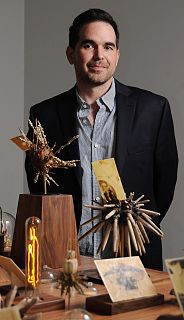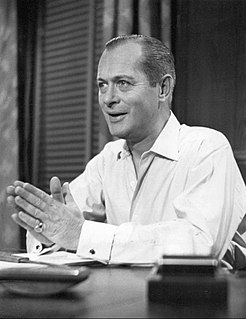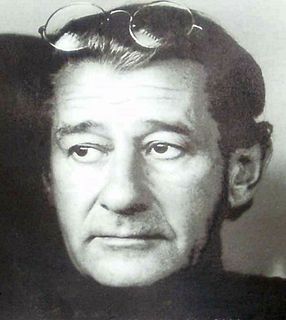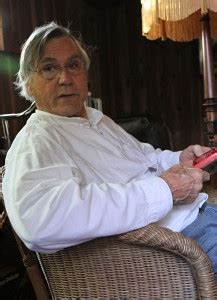A Quote by Dario Robleto
Populism in contemporary art can become a dirty word. There is this notion that to not be understood is a reflection of depth. I'm sure this is true in some cases, but on the whole I can't accept this as a vision of art. There's something so cynical about assuming your audience is unintelligent or that artists shouldn't care about their viewers.
Related Quotes
Obviously my own work comes from a conceptual art tradition, but I love the graffiti artists, and I feel spiritually closer to them than to most contemporary art; they make the city a free space of diverse voices and we shouldn't get all cynical about them just because Banksy made some money. I collaborate sometimes with Krae, who is an old school east London graffiti writer.
What makes art Christian art? Is it simply Christian artists painting biblical subjects like Jeremiah? Or, by attaching a halo, does that suddenly make something Christian art? Must the artist’s subject be religious to be Christian? I don’t think so. There is a certain sense in which art is its own justification. If art is good art, if it is true art, if it is beautiful art, then it is bearing witness to the Author of the good, the true, and the beautiful
I teach art at a famous art school, and yet I don't have really the least notion what post-modernism means, but we have people in the letters and science department that understand it quite well and the students go there if they want to understand what this term that is being bandied about is all about, but I've never understood it.
I just really care about what people see. I want them to know that I'm working hard for this. The artists that I look up to like, you know, Michael, Prince, James Brown. You watch them and you understand that they're paying attention to the details of their art. And they care so much about what they're wearing, about how they're moving, about how they're making the audience feel. They're not phoning it in. They're going up there to murder anybody that performs after them or performs before them. That's what I've watched my whole life and admired.
You don't fully understand the meaning of a work until the audience responds to it. Because the audience completes the circle, and adds a whole other shade of meaning. Whenever you view something, and this is why great works of art survive decades and centuries, is because there's a door within the work that allows the audience to walk through and complete the meaning of the work. An audience isn't passive, nor are they unintelligent.
The subject of contemporary art should include a political dimension, the distrust contemporary art has towards the existing order. One manifestation of this distrust is the mechanical dichotomization between art's form and its political content; the other is the institutionalizing tendency of anti-institutionalization. We almost never resist ourselves - the part of ourselves that has been institutionalized. We have occupied the word "resistance" and have become its owner, while "resistance" has become our servant. Thus, we own "resistance" and occupy it as a position of power.
I like art that challenges you and makes a lot of people angry because they don't get it. Because they refuse to look at it properly. Rather than open their mind to the possibility of seeing something, they just resist. A lot of people think contemporary art makes them feel stupid. Because they are stupid. They're right. If you have contempt about contemporary art, you are stupid. You can be the most uneducated person in the world and completely appreciate contemporary art, because you see the rebellion. You see that it's trying to change things.
True art means if it helps you to become silent, still, joyous; if it gives you a celebration, if it makes you dance—whether anybody participates with you or not is irrelevant. If it becomes a bridge between you and God, that is true art. If it becomes a meditation, that is true art. If you become absorbed in it, so utterly absorbed that the ego disappears, that is true art.
What strikes me is the fact that in our society, art has become something which is related only to objects and not to individuals, or to life. That art is something which is specialized or which is done by experts who are artists. But couldn't everyone's life become a work of art? Why should the lamp or the house be an art object, but not our life?

































